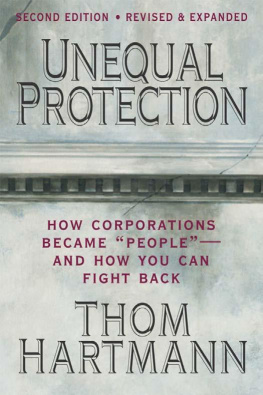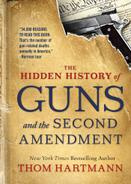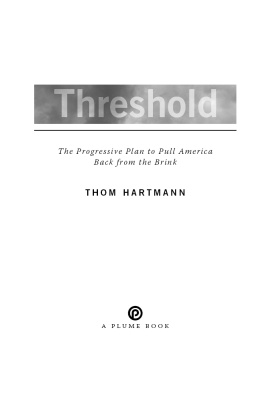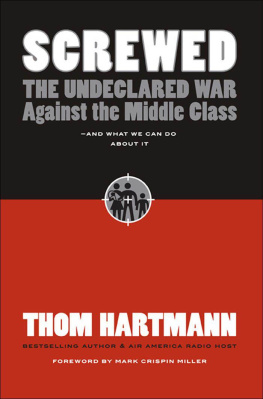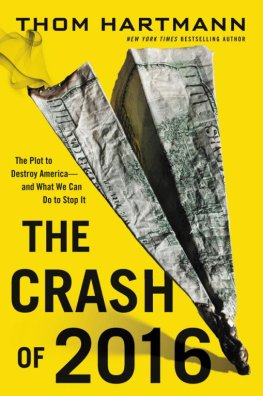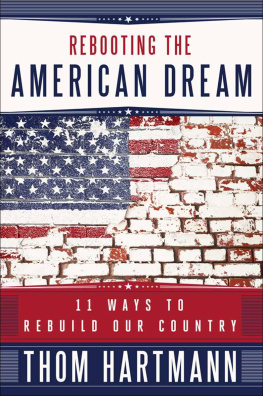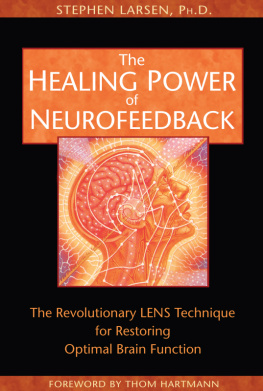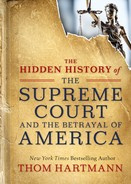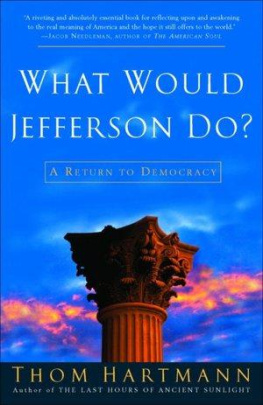Thom Hartmann - Unequal Protection
Here you can read online Thom Hartmann - Unequal Protection full text of the book (entire story) in english for free. Download pdf and epub, get meaning, cover and reviews about this ebook. year: 2010, publisher: Berrett-Koehler, genre: Science / Politics. Description of the work, (preface) as well as reviews are available. Best literature library LitArk.com created for fans of good reading and offers a wide selection of genres:
Romance novel
Science fiction
Adventure
Detective
Science
History
Home and family
Prose
Art
Politics
Computer
Non-fiction
Religion
Business
Children
Humor
Choose a favorite category and find really read worthwhile books. Enjoy immersion in the world of imagination, feel the emotions of the characters or learn something new for yourself, make an fascinating discovery.
- Book:Unequal Protection
- Author:
- Publisher:Berrett-Koehler
- Genre:
- Year:2010
- Rating:4 / 5
- Favourites:Add to favourites
- Your mark:
- 80
- 1
- 2
- 3
- 4
- 5
Unequal Protection: summary, description and annotation
We offer to read an annotation, description, summary or preface (depends on what the author of the book "Unequal Protection" wrote himself). If you haven't found the necessary information about the book — write in the comments, we will try to find it.
Unequal Protection — read online for free the complete book (whole text) full work
Below is the text of the book, divided by pages. System saving the place of the last page read, allows you to conveniently read the book "Unequal Protection" online for free, without having to search again every time where you left off. Put a bookmark, and you can go to the page where you finished reading at any time.
Font size:
Interval:
Bookmark:

Also by Thom Hartmann
Threshold: The Crisis of Western Culture
Cracking the Code: How to Win Hearts, Change Minds, and Restore Americas Original Vision
Screwed: The Undeclared War against the Middle Classand What We Can Do about It
What Would Jefferson Do?: A Return to Democracy
The Last Hours of Ancient Sunlight: The Fate of the World and What We Can Do Before Its Too Late
Ultimate Sacrifice: John and Robert Kennedy, the Pla n for a Coup in Cuba, and the Murder of JFK
Legacy of Secrecy: The Long Shadow of the JFK Assassination
We the People: A Call to Take Back America
Walking Your Blues Away: How to Heal the Mind and Create Emotional Well-being
Attention Deficit Disorder : A Different Perception
Thom Hartmanns Complete Guide to ADHD: Help for Your Family at Home, School and Work
Healing ADD : Simple Exercises That Will Change Your Daily Life
The Edison Gene: ADHD and the Gift of the Hunter Child
ADD Success Stories: A Guide to Fulfillment for Families wi th A ttention Deficit Disorder
Think Fast: The ADD Experience
Beyond ADD: Hunting for Reasons in the Past and Present
ADHD Secrets of Success: Coaching Yourself t o Fulfillment in the Business World
The Prophets Way: A Guide to Living in the No w
The Greatest Spiritual Secret of the Century
Unequal Protection
How Corporations Became People
and You Can Fight Back
2 nd Edition, Revised and Expanded
By Thom Hartmann
To my favorite Zen Master, Mike Dirkx
History has informed us that bodies of men, as well as individuals, are susceptible to the spirit of tyranny.
Thomas Jefferson, A Summary View of the
Rights of British America, 1774
Table of Contents
Its really a wonder that I havent dropped all my ideals, because they seem so absurd and impossible to carry out. Yet I keep them, because in spite of everything I still believe people are really good at heart.
-Anne Frank, from her diary, July 15, 1944
O n September 2, 2009, the transnational pharmaceutical giant Pfizer pled guilty to multiple criminal felonies. It had been marketing drugs in a way that may well have led to the deaths of people and that definitely led physicians to prescribe and patients to use pharmaceuticals in ways they were not intended.
Because Pfizer is a corporationa legal abstraction, reallyit couldnt go to jail like fraudster Bernie Madoff or killer John Dillinger; instead it paid a $1.2 billion criminal fine to the U.S. governmentthe biggest in historyas well as an additional $1 billion in civil penalties. The total settlement was more than $2.3 billionanother record. None of its executives, decisio n makers, stockholders/owners, or employees saw even five minutes of the inside of a police station or jail cell.
Most Americans dont even know about this huge and massive crime. Nor do they know that the criminal never spent a day in jail.
But they do know that in the autumn of 2004, Martha Stewart was convicted of lying to investigators about her sale of stock in another pharmaceutical company. Her crime cost nobody their life, but she famously was escorted off to a womens prison. Had she been a corporation instead of a human being, odds are there never would have even been an investigation. Yet over the past centuryand particularly the past forty yearscorporations have repeatedly asserted that they are, in fact, persons and therefore eligible for the human rights protections of the Bill of Rights.
In 2009 the right-wing advocacy group Citizens United argued before the Supreme Court that they had the First Amendment right to free speech and to influence elections through the production and the distribution of a slasher documentary designed to destroy Hillary Clintons ability to win the Democratic nomination. (Some political observers assert that they did this in part because they believed that a Black man whose first name sounded like Osama and whose middle name was Hussein could never, ever, possibly win against a Republican, no matter how poor a candidate they put up.)
In that, they were following on a 2003 case before the Supreme Court in which Nike claimed that it had the First Amendment right to lie in its co r porate marketing, a variation on the First Amendment right of free speech. (Except in certain contract and law enforcement/court situations, its perfectly legal for human persons to lie in the United States. Nobody ever went to jail for saying, No, of course you dont look fat in those pants!)
Corporations havent limited their grasp to the First Amendment; pretty much any and virtually every amendment that could be used to further corporate interests has been fair game. (They havent yet argued the Third Amendmentyou cant force citizens to quarter soldiers in their homesalthough Blackwaters activities in New Orleans during the aftermath of Hurricane Katrina could have provided an interesting test.)
As youll learn in this book, in previous decades a chemical company took to the Supreme Court a case asserting its Fourth Amendment right to privacy from the Environmental Protection Agencys snooping into its illegal chemical discharges. Other corporations have asserted Fif t h Amendment rights against self-incrimination as well as asserted that the Fourteenth Amendmentpassed af t er the Civil War to strip slavery from the Constitutionprotects their right against discrimination by a local community that doesnt want them building a toxic waste incinerator, commercial hog operation, or superstore.
If this trend continues, its probably just a matter of time before a corporation (maybe one of the many mercenary forces that emerged out of George W. Bushs Iraq War?) claims the Second Amendment right to bear arms anywhere, anytime, and your credit card companys bill collector shows up at your home with a sidearm.
This legal situation is not only bizarre but also quite the opposite of the vision for this country held by the Founders of the nation and the Framers of the Constitution. They were sufficiently worried about corporate power that they didnt even include in the Constitution the word corporation , intending instead that the states tightly regulate corporate behavior (which the states did quite well until just after the Civil War).
The American Revolution, youll learn in this book, was in fact provoked by the misbehavior of a British corporation; our nation was founded in an anti-corporate-power fury.
Corporate Personhood in the Making
The most significant and oft-quoted precedent to the turning point of corporate power in America began just after the Civil War. It rested on a Constitutional Amendment successfully written and passed by a group of Radical Republicans after the Civil War to take slavery out of the Constitution.
Given that todays Republican Party haslargely since the Robber Baron Era of the 1880sbeen the party of big business and the very rich, its a bit difficult for some people to get their minds around the possibility that the Republican Party started out as a reform party that for nearly seventy years (from before Abraham Lincoln until just after Theodore Roosevelt left the party to start a third party) had a strong progressive wing. But it did.
Although Lincoln was by todays standards a moderate Republican, he was still anti-slavery, promiddle class, and pro-labor (he famously said, Labor is superior to capital because it precedes capitalnobody was wealthy until somebody made somethingand was the first president both to use the word strike and to actually stop police and private armies from killing and beating strikers).
Font size:
Interval:
Bookmark:
Similar books «Unequal Protection»
Look at similar books to Unequal Protection. We have selected literature similar in name and meaning in the hope of providing readers with more options to find new, interesting, not yet read works.
Discussion, reviews of the book Unequal Protection and just readers' own opinions. Leave your comments, write what you think about the work, its meaning or the main characters. Specify what exactly you liked and what you didn't like, and why you think so.

